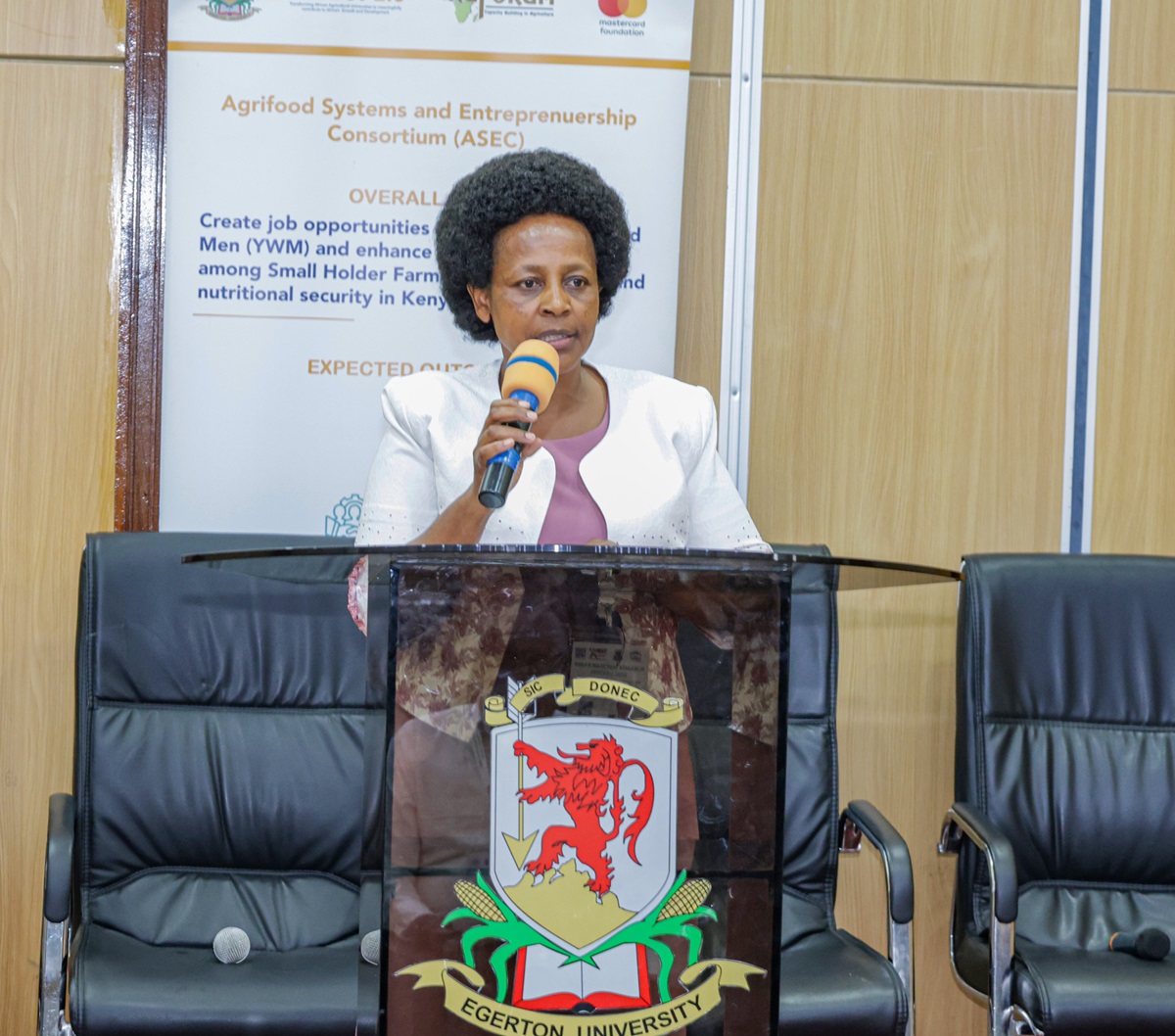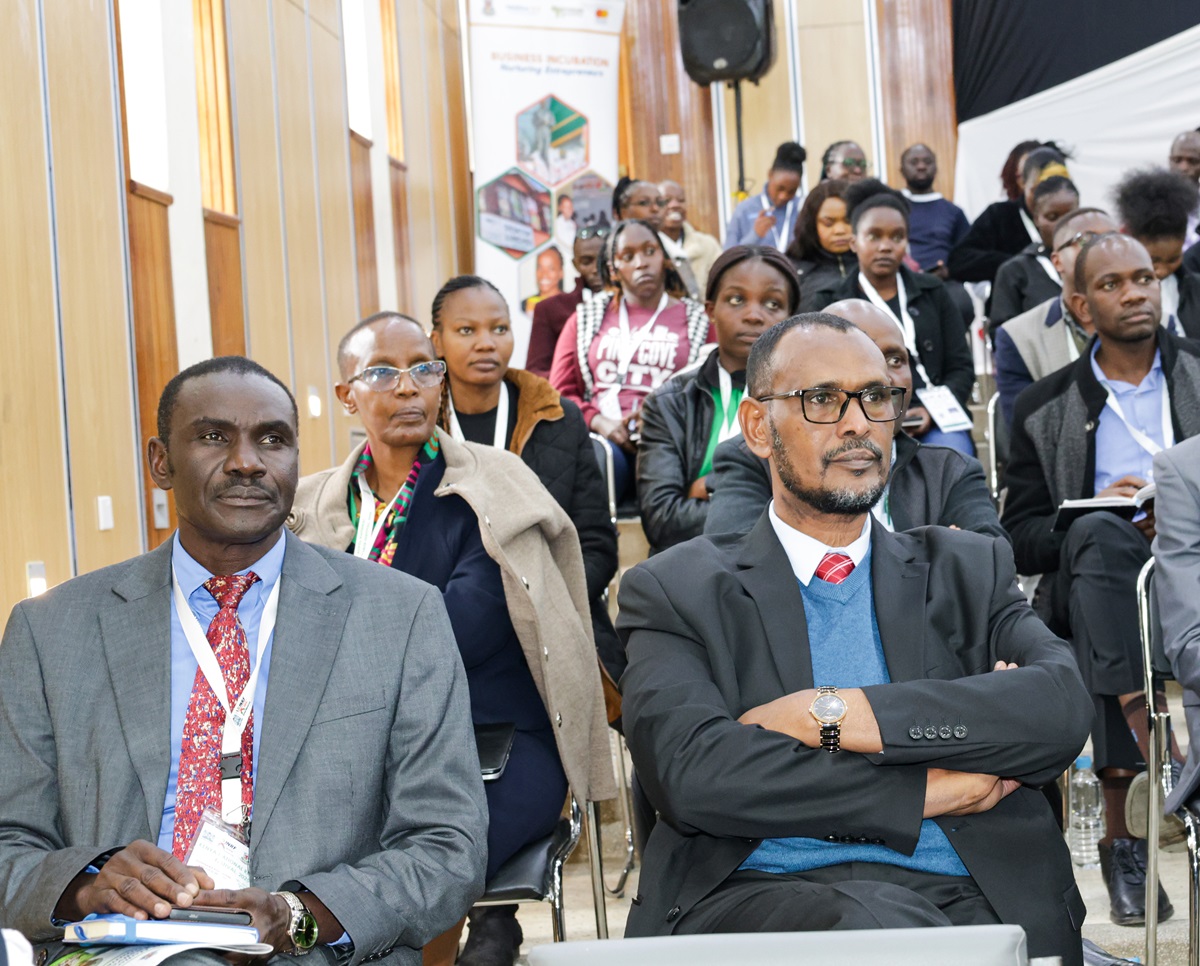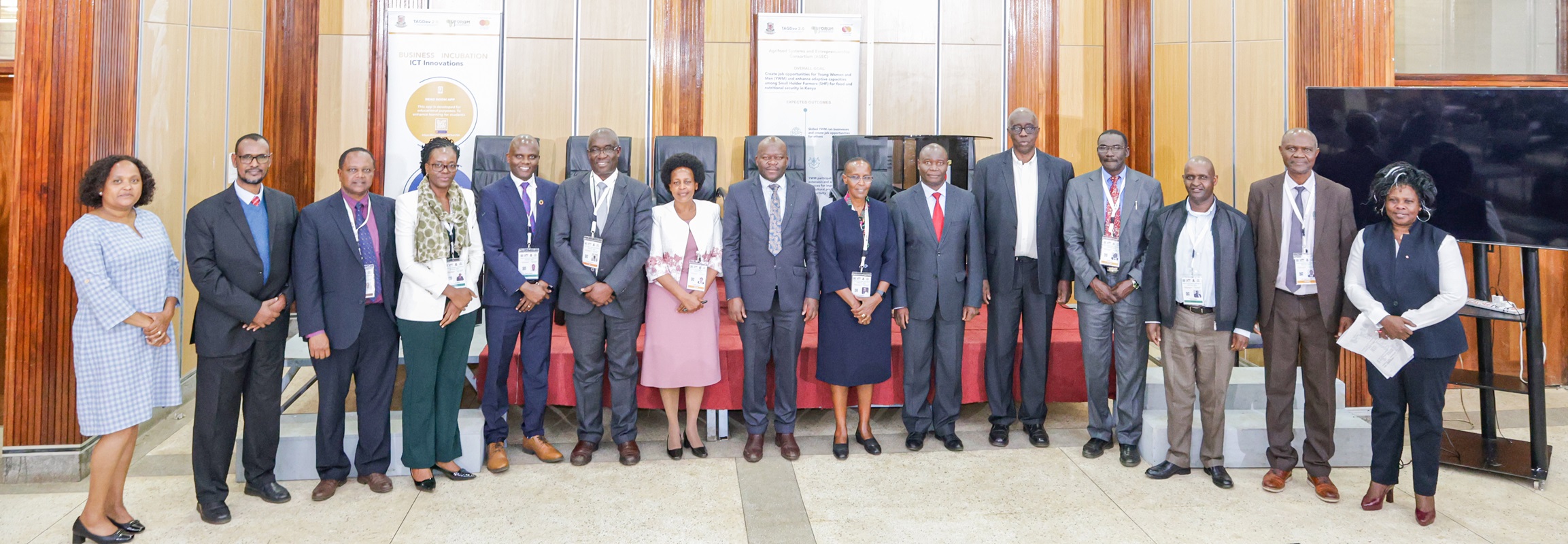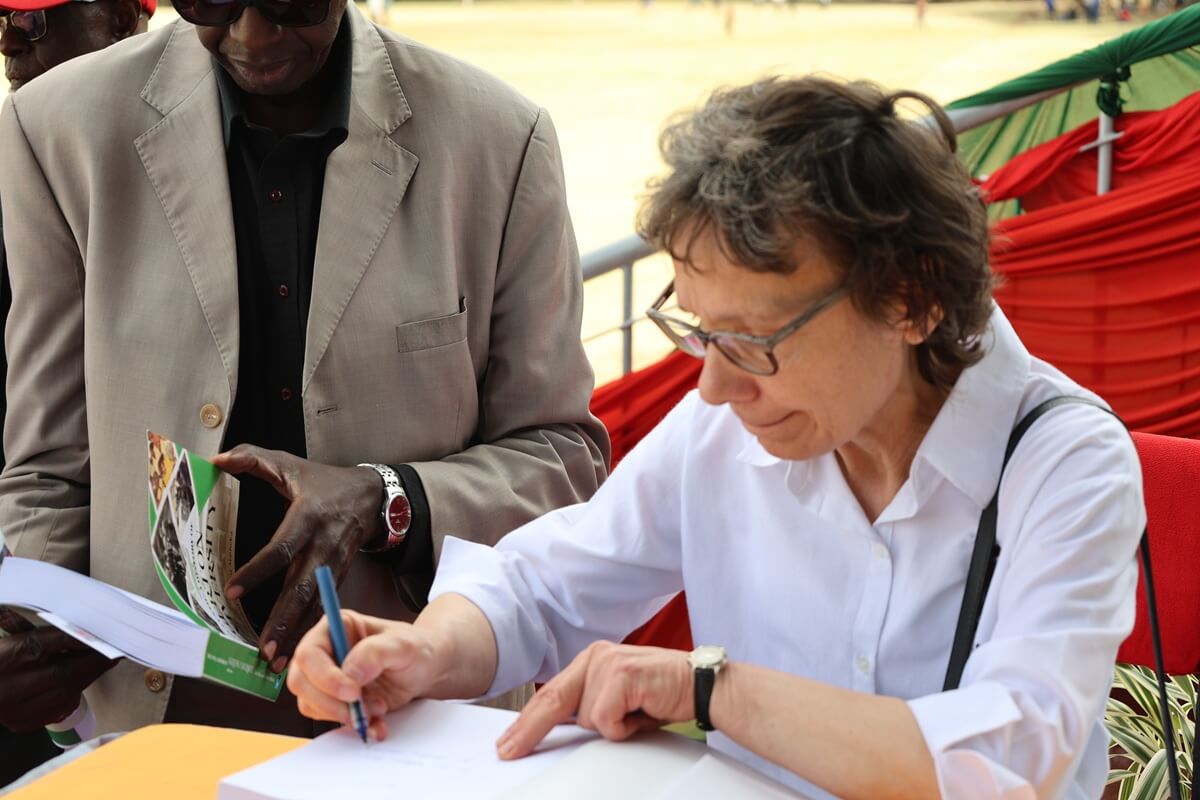Egerton University played host to a significant national forum on 20 August 2025 during the Kenya National Research Festival, where stakeholders from across the education, government, and development sectors met to reflect on the future of agricultural education.
The side event was organised through the Transforming African Agricultural Universities to meaningfully contribute to Africa’s growth and development (TAGDev 2.0) Programme, a ten-year initiative (2023–2033) that Egerton is implementing in partnership with RUFORUM, the Mastercard Foundation, and the Global Confederation of Higher Education Associations for Agriculture and Life Sciences (GCHERA).
Opening the forum, Vice Chancellor Prof. Isaac Kibwage underlined the urgency of shifting from traditional lecture-based models to teaching approaches that are competency-based, practical, and inclusive. “Agricultural education must equip learners not only with knowledge, but with the ability to solve problems, think critically, and innovate,” he said. He added that such reforms are essential if the country is to address food insecurity, climate change, and youth unemployment while contributing to Kenya’s Vision 2030 and the global Sustainable Development Goals.

TAGDev 2.0 Coordinator Prof. Nancy Mungai addressing participants on the programme’s transformative vision.
Prof. Nancy Mungai, the TAGDev 2.0 Coordinator at Egerton, acknowledged the support of partners and participants, while tracing the journey of TAGDev. The program, co-implemented by RUFORUM, GCHERA, and 12 African universities in partnership with Mastercard Foundation, seeks to transform agricultural education by empowering young women and men to access work and livelihood opportunities, improving graduate outcomes, and promoting adaptive capacities amongst agricultural communities. She noted that six partner universities and TVETs in Kenya are already aligning curricula and community engagement with national priorities.
Representing RUFORUM, Dr. Abigael Otinga provided background on the program’s continental scope, with over 60 universities participating. She highlighted three key outcomes: wealth creation, building resilient smallholder food systems, and strengthening institutions. “TAGDev is scaling lessons from its first phase,” she explained, emphasizing inclusivity for women, persons with disabilities, and refugees, with a target of reaching 1.2 million youth in the next decade.
From the Mastercard Foundation, Mr. George Osure highlighted agriculture’s broader potential, saying it was not only about food but also about livelihoods, innovation, and resilience. “Our work through TAGDev 2.0 is rooted in enabling young people to access dignified and fulfilling work,” he said. He called for stronger partnerships between universities, government, and the private sector to ensure students are exposed to experiential learning, agribusiness incubation, and opportunities to scale youth-led innovations.
The forum also marked the launch of the TAGDev National Coordinating Committee, which will oversee the programme’s rollout in Kenya. A high-level panel discussion followed under the theme “Young People in Agriculture: Driving the Future through Innovation and Entrepreneurship.” Panelists highlighted the importance of policy reforms, mentorship, and access to financing to ensure more young people view agriculture as a viable career.

Prof. George Owuor and Prof. Abdi Guliye following proceedings at the forum
In a keynote during the panel, Dr. Mary Waiganjo spoke about the ongoing implementation of Competency-Based Education (CBE) in Kenya’s universities. She noted that lessons from this shift could be applied to strengthen agricultural curricula, making them more relevant to the needs of employers and communities.
Among those attending were senior Egerton leaders including Deputy Vice Chancellors Prof. Bernard Aduda (Academics, Research and Extension) and Prof. Richard Mulwa (Administration, Finance & Planning), Director, Research and Extension Prof. George Owuor, Director, Marketing and Resource Mobilisation Prof. Nzula Kitaka, Director ,Postgraduate Studies Prof. Charles M’Erimba, and Dean of FEDCOS Dr. Flora Fedha. National representatives included Prof. Abdi Guliye, Advisor on Livestock and Rangeland Management in the Executive Office of the President.
By the close of the event, one message was clear: the future of agriculture in Kenya depends on how effectively the country equips its young people with the right skills, values, and opportunities. Egerton University’s hosting of this forum demonstrated not only its commitment to academic excellence but also its determination to be at the forefront of linking research, education, and community needs.
As TAGDev 2.0 takes shape over the coming years, its success will be measured not only by the number of programmes reformed or students trained, but by the stories of young men and women who are able to create enterprises, contribute to food security, and improve livelihoods in their communities.

A group photo capturing selected partners, guests, and participants at the close of the event.
Among those attending were senior Egerton leaders including Deputy Vice Chancellors Prof. Bernard Aduda (Academics, Research and Extension) and Prof. Richard Mulwa (Administration, Finance & Planning), Director, Research and Extension Prof. George Owuor, Director, Marketing and Resource Mobilisation Prof. Nzula Kitaka, Director ,Postgraduate Studies Prof. Charles M’Erimba, and Dean of FEDCOS Dr. Flora Fedha. National representatives included Prof. Abdi Guliye, Advisor on Livestock and Rangeland Management in the Executive Office of the President.
By the close of the event, one message was clear: the future of agriculture in Kenya depends on how effectively the country equips its young people with the right skills, values, and opportunities. Egerton University’s hosting of this forum demonstrated not only its commitment to academic excellence but also its determination to be at the forefront of linking research, education, and community needs.
As TAGDev 2.0 takes shape over the coming years, its success will be measured not only by the number of programmes reformed or students trained, but by the stories of young men and women who are able to create enterprises, contribute to food security, and improve livelihoods in their communities.








